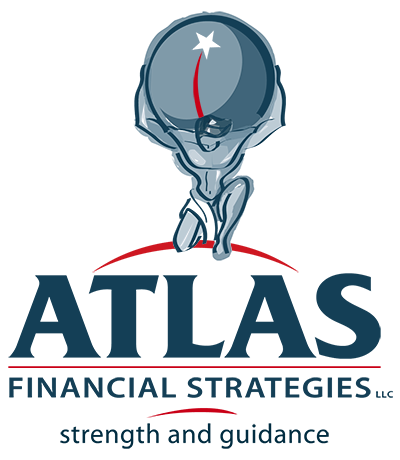- Our Process
- Video Learning Library
- Third Party Resources
- In the News
- Contact
- Investment Team
- Informational Guides
- Client Forms
- Our Firm
- I Just Sold My Business—Now What?
- How to Delay Withdrawals on Your Retirement Accounts
- Blog
- Investment Management
- Preparing Your Business for Sale: Navigating Due Diligence
- The Nautilus Group®
- Special Needs Planning
- Navigating Income Tax
- Life plan for your business®
- What You're Failing to Consider About Your Future Part I: Business Owners
- What You're Failing to Consider About Your Future Part II: Retirees
- What You're Failing to Consider About Your Future Part III: Young Professionals
- How Much Life Insurance Do I need?
- What You Should Know About Your Emergency Fund
- How Pre- and Post-Tax Contributions Affect Your Retirement
- Should You Do a Roth Conversion?
- Managing Debt: The Snowball vs. The Avalanche
- Your Extra Cash: Is It Better to Pay Off Debts or Invest More Money?
- Student Loans: What's the Best Way to Pay Them Off?
- Maximizing Your Money: Find the Most Efficient Use of Your Dollar
- Planning Post-Pandemic: Survival Tips for Business Owners
- Preparing Your Business for Sale: Are You Ready?
- Preparing Your Business for Sale: Pre-Sale Task List
- Preparing Your Business for Sale: Questions to Ask Potential Buyers
- Preparing Your Business for Sale: What to do When Things Get Serious
- When a Retirement and Legacy Arrangement (RALA) Makes Sense for You
- Know Your Numbers: The Importance of Creating Cash Management Systems Before Growth
- Tax Strategies for Business Owners
- Your Growing Business: Hiring the Right People
- Creating an Emergency Succession Plan to Protect Your Business
- Estate Planning: Equal Isn't Always Fair
- What’s the Greatest Gift You Can Leave Your Family? A Plan for Future Financial Success
What You're Failing to Consider About Your Future Part II: RetireesPart II: RetireesPreparing for retirement might seem like the most basic aspect of financial planning, but studies have shown that there’s a massive information gap when it comes to how retirees intend to spend their money compared to how they actually plan to save it. Too many people don’t know how much they need for retirement or how to distribute their assets when they get there. In this blog, we’ll talk about the important aspects of a retirement plan and what you might be failing to consider when it comes to your future as a retiree. The Widow's Penalty TaxMost people understand that the death of a spouse will affect their finances, especially if they’re still in their income-earning years. But it’s not just the loss of active income that causes repercussions in a couple’s finances. Many people fail to consider the possibility of what’s called the Widow’s Penalty Tax. If a couple is retired (and they’ve planned properly), they should have a few sources of steady income from pensions, social security, or other benefits. But if one of the spouses passes away, the widow or widower sees an automatic reduction in income. That person will get to keep the larger of the two social security payments, but they’ll lose the other. As for pensions, if a husband had a $3,000 pension and he passes away, that income becomes a survivor benefit, rather than the full pension amount. And if the account offers a 50% survivor benefit, the widow now only receives $1,500 a month. On top of that, she’ll have to file taxes as a single person. So even with a significantly reduced income, she could end up paying more in taxes than she was before—thus, the Widow’s Penalty Tax. These might seem like small repercussions, but they add up, and if a coupe isn’t prepared for these circumstances, it can drastically affect the widow or widower’s lifestyle. But if you consider these possibilities ahead of time, you can address the issue with life insurance or by using other assets as a safeguard. Sequence of Returns RiskThis is another concept most retirees don’t consider or haven’t heard of. Your retirement funds aren’t just dependent on how much you invest, but when those investments grow or diminish. Before you retire, you’re focused on your average return over many years. But after you retire, the sequence in which you receive returns matters even more. For example: If you see investment losses (or make significant withdrawals) in your first few years of retirement, that has a dramatic effect on how long your investments last throughout your retirement—and how they continue to perform over time. With early losses, your investments will then accrue off of a smaller base amount, and you may not have time to make up the loss as the market recovers. But if you see losses later in retirement, you’re in a much more stable situation. And while you can’t control market fluctuations, you can control your level of risk and when you decide to take distributions. With the uncertainties around investing, would it be better to put all your retirement efforts into fixed-income investments like annuities? Not necessarily—because then you don’t have the opportunity to realize the significant gains market investments can accrue. But the Sequence of Returns Risk is something you need to consider when determining what kind of risks you’re willing to take in retirement and how you plan to distribute your assets. Diversify and Distribute WiselyThat said, market investing isn’t the only strategy you should leverage to support your retirement. If you don’t have a source of guaranteed income and a plan for distributing your invested assets after you retire, you run the risk of outliving your money. A common misconception in retirement planning is that you can simply draw on your investment gains each year in retirement—but this would mean you would have wildly fluctuating income, and consequently you’d have to adjust your lifestyle to suit the market. People assume they’ll see their “average” return every year on their investments—but there’s a difference between an average return and a consistent return. An average return factors in the low-earning and the high-earning years—meaning one year, you might see a 2% return, and another year, you might see 7%. And even if you did consistently see a 5% return, that amount would buy less and less each year because of inflation. That’s why it’s not wise to rely on investment gains alone to support your retirement. Instead, you should establish what we call “mailbox money”—guaranteed income you receive every month during retirement. For instance, if you need at least $5,000 a month to cover your expenses, it’s best to try and supply that amount from a steady source like social security benefits, pensions, or income annuities. The goal is that you won’t need to draw from your investment accounts to make ends meet. That way, you can invest a little more aggressively and not worry about outliving your money—which is a much more anxiety-free retirement. Do the MathPerhaps one of the most basic and influential factors people fail to consider in their retirement is the ratio of their income to their expenses. For whatever reason, people assume that retirement means they’ll have extra money to spend—without budgeting or creating a strategic plan to do so. They see that they have a couple million dollars in savings, and they want to remodel their homes, buy new cars, and continue living the lifestyle they’re accustomed to. But when you consider that many people retire around age 60 and live well into their 80s, that amount of money typically doesn’t last as long as people expect it to. Even with the best plan, many retirees put themselves in a tight spot because they fail to calculate their expenditures against their assets and their life expectancy. Most people have zero understanding of what they can spend in retirement without running the risk of outliving their money—which is why it’s vital to plan not just for retirement, but how to spend your money during those years. It’s extremely important to have an advisor in your corner, guiding you through the process to ensure you stay on track while you enjoy your time making memories. It's Never Too LateThe good thing is, there’s always time to make a wise decision. Of course, it’s best to start planning as young as possible, but even if you retire in the next few years, you can talk to an expert about your expectations for retirement. It’s better to make some adjustments now than be hit with a big surprise when you’re 70. If you want to get the most out of your golden years, schedule a consultation with us to learn more. And if you want to take advantage of your planning opportunities during your income-earning years, check out Part III of this blog series for young professionals. |
 Quick Links
Quick Links
